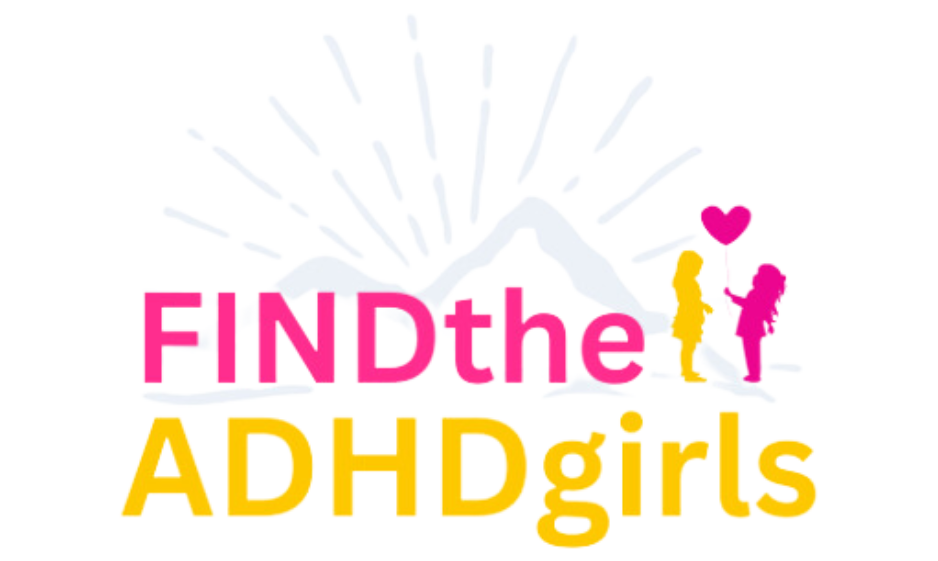“But she’s so smart…”
You’ve probably said that about your daughter. Or thought it. Maybe her teacher has said it. You know she’s bright, so why does she struggle so much with everyday things? When it comes to ADHD girls, intelligence and executive function don’t always develop at the same pace, creating a frustrating gap between what she knows and what she can do.
Your daughter may have a vocabulary years ahead of her grade level, or easily understand scientific concepts. She’s a quick learner—curious, creative, and perceptive. But…
She doesn’t get dressed without reminders.
She melts down when it’s time to switch tasks.
She often forgets her backpack at school.
She doesn’t start the homework that would take five minutes, even though she understands it.
The gap between her knowing and doing doesn’t make sense. But if your daughter has ADHD, her intelligence isn’t what’s lacking; it’s her executive function skills. They are not the same, and without the full picture of smarts and skills, ADHD girls get overlooked.

The Difference Between IQ and Executive Function
IQ is short for intelligence quotient, and refers to reasoning abilities. In other words, IQ tests measure your cognitive capacity, ability to apply knowledge, and learning potential.
For ADHD girls, intelligence and executive function don’t always align. Executive functions are the mental skills that help you use what you know to complete daily tasks. These include the ability to plan, prioritize, start tasks, manage time, regulate emotions, and follow through.
You can think of it this way: intelligence is a powerful computer. Executive function is the computer’s operating system.
ADHD kids may be as smart or smarter than other children their age. However, they develop executive function skills more slowly, often lagging two to three years behind. Referring to the earlier metaphor, it doesn’t matter how good (smart) the computer is when the operating system isn’t keeping up.
It’s not that ADHD kids are incapable of developing executive functioning abilities; it just takes more time. While your daughter’s brain grows, ADHD-friendly strategies and support help bridge the gap between smarts and skills. Although her path might be slower, with the right building blocks and support, she’ll get there.
The Twice Exceptional Disconnect
Some girls with a high IQ and learning differences like ADHD are called twice exceptional (2e). These gifted kids are ahead in some areas and behind in others, creating a mismatch between their potential and performance.
Highly Intelligent ADHD Girls May:
Use “existential crisis” correctly in a sentence, but cry if you cut their sandwich wrong.
Invent highly detailed stories, but struggle to tie their shoes.
Understand a new math concept immediately, but get overwhelmed by small transitions.
The thing is, areas of your daughter’s ADHD brain develop at different speeds on separate tracks, and the mix of her executive function challenges is unique to her. For ADHD girls, intelligence and executive function may not progress together. For example, she might have no trouble managing time, but constantly loses things. Or she might be organized, but melt down under emotional stress. Her executive functioning abilities can also vary daily. Yesterday’s piece-of-cake chore is today’s insurmountable task.
Ultimately, though, when her smarts and skills don’t line up, you’ll notice the disconnect. It’s why your daughter can sound brilliant in a conversation but still forget to brush her teeth every morning. Or freeze when it’s time to start homework, even if she just explained what she needs to do in perfect detail.
Inconsistencies: When Interest Overrides Struggle

However, that’s not exactly true. Your daughter can focus, but it’s not a switch she’s in charge of. For ADHD girls, intelligence and executive function don’t always work in sync. ADHD is a dysregulation of attention, and her brain is interest-driven. In other words, she can focus on things she loves or that light up her brain. However, that ability doesn’t transfer to the things she finds boring, frustrating, or irrelevant. This inconsistency isn’t within her control; it’s how her brain is wired.
Attention Tip: Add novelty, fun, or small rewards to “boring” things whenever you can. It’s not a bribe; it’s engaging your daughter’s brain.
For example:
Gamify: Set a timer and ask, “How many math problems can you finish in 5 minutes? Annnnd…Go!”
Reward: “After you finish this assignment, we’ll have a silly dance party.”
Novelty: Try CUPID to light up your daughter’s ADHD brain! (Details here)
Intelligence Can Disguise ADHD
Some parents don’t recognize ADHD in their daughters because they may be doing well academically. But ADHD often presents in different ways, and we need to look beyond grades to understand the full picture.
~Andrea Chronis Tuscano, Ph.D.ADHD professor and researcher
Intelligence in ADHD girls often delays identification and diagnosis. They are smart enough to get by and use their intelligence to mask symptoms and struggles. For example, these girls may do well on tests without studying. They’ll fly under the radar because they’re quiet, compliant, or daydreaming and doing “well enough.” A quiet A or B student isn’t going to attract much attention—they appear fine, even when they’re barely keeping up. It’s like a duck lazily floating on a pond, but paddling like mad underneath the surface.

For girls with ADHD, grades don’t reflect the full picture, especially in elementary school. With reminders and extra effort, your young daughter can stay afloat despite her executive dysfunction. But as she gets older, social and academic pressures increase, and it takes more and more effort for her to keep up.
“It’s not about grades—it’s about the cost of success. At what cost is she succeeding?”
~Dana Dzamic, ADHD coach, consultant, advocate
What You May See Even When the Grades Are Good
- Your daughter has BIG emotions when she gets home from school. She’ll hold it together all day and then melt down at home.
- She resists starting her homework, even easy assignments. But once she starts, she can answer most or all questions correctly.
- She wants things to be perfect. For example, she’ll spend two hours rewriting the first sentence because it’s “not good enough.”
- Her performance varies without a clear reason why. She’ll ace one assignment and forget to turn in the next.
- Even if no one is correcting her, she’ll call herself stupid, lazy, or bad when she makes a simple mistake.
These aren’t quirks, character flaws, or calculated behaviors. It’s executive dysfunction wrapped in intelligence.
Smart ADHD Girls Struggle in Silence
Girls tend to be more perfectionistic than boys. If a boy procrastinates, he might be more likely not to finish the homework, and a girl is more likely to stay up til 3 am to get it done. Then she hands it in, and it looks good. Nobody knows that she had so much pain involved.
~Sarah Cheyette, pediatric neurologist
Why It Matters

When ADHD girls can’t follow through, they start believing it’s because they are lazy or broken. They don’t understand why they can’t “just do the thing,” and quietly blame themselves. They work harder and harder to keep up with expectations, often developing anxiety and perfectionism. And the longer your daughter struggles, the bigger the toll it takes.
Importance of Diagnosis and Support
If you don’t give your kid an explanation for what they’re struggling with, what they make up is a whole lot worse. They’ll think they’re crazy, lazy, or stupid.
~Liz Adams, Neuropsychologist specializing in ADHD
For these smart but struggling girls, an ADHD diagnosis can be the AHA moment. The mismatch of smarts and skills doesn’t mean something is wrong or they’re broken. It means there’s a name and an explanation for the struggle. And once you know what’s going on, you can help your daughter develop the executive function skills that allow her intelligence to shine.
Remember: your daughter isn’t being willful or calculated; her brain works and learns differently. She’s struggling with executive dysfunction and needs your understanding and support.
Could What You See Be ADHD?
Download our free ADHD in Girls Checklist to help connect the dots between what you’re seeing and common ADHD symptoms.
About the Author

Alex Alcon
Alex Alcon, RN, Freelance nurse content and copywriter, owner of RN2Pen LLC.

Cynthia Hammer, MSW
Cynthia Hammer, MSW, is an ADHD advocate helping girls get timely diagnoses. She's the founder of FINDtheADHDgirls, Executive Director of Inattentive ADHD Coalition, and author of Living with Inattentive ADHD.
Share via:

